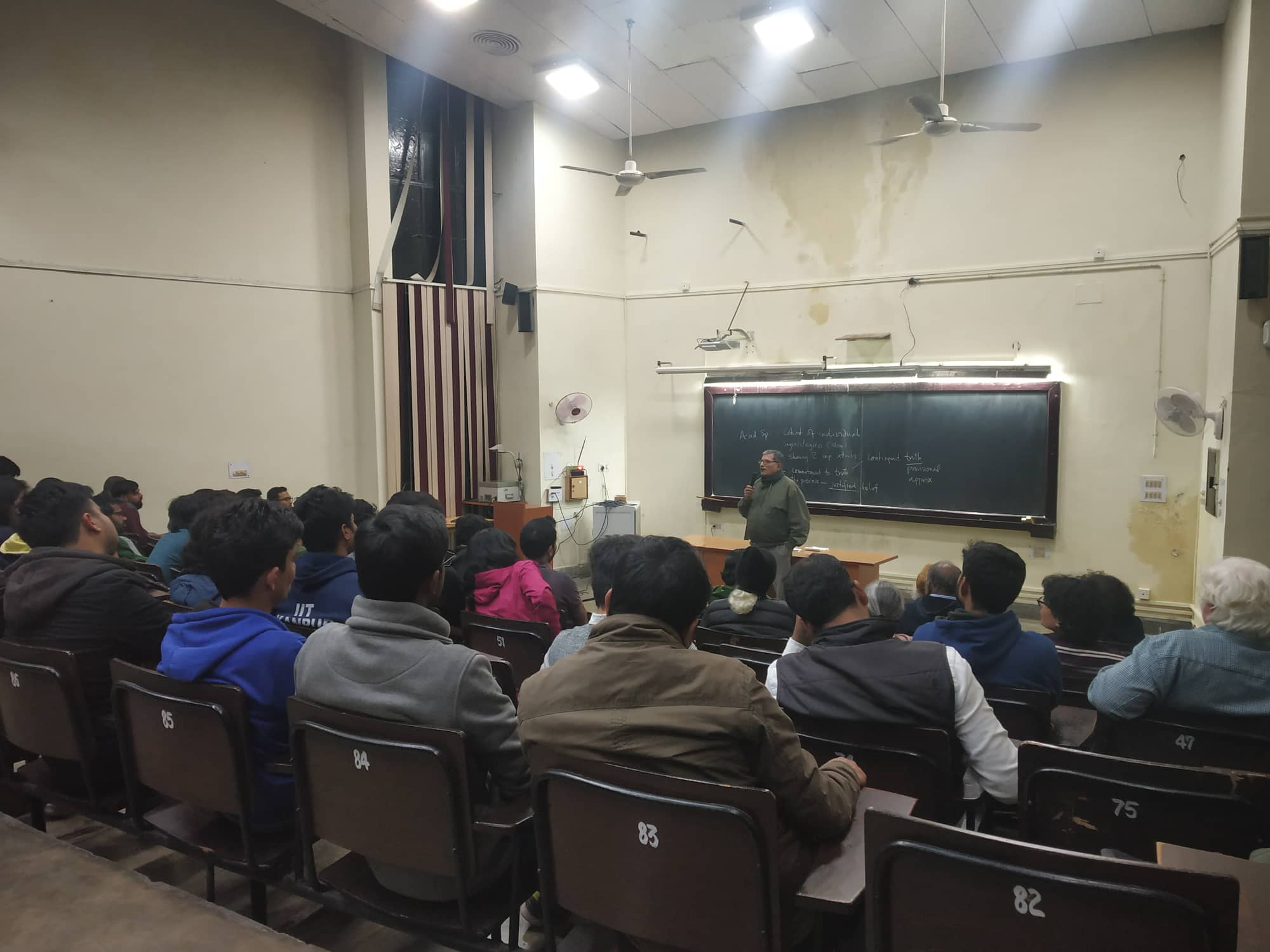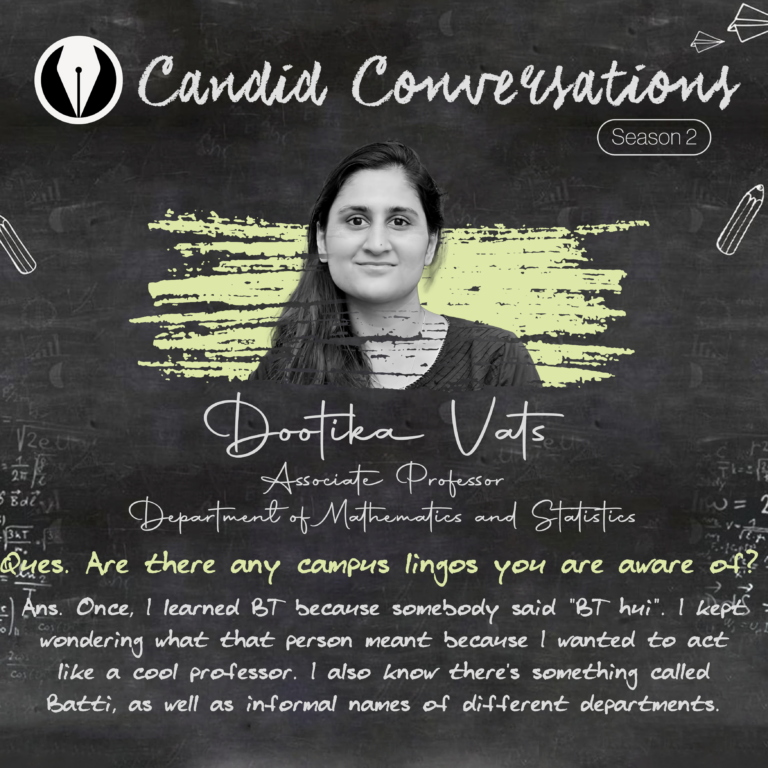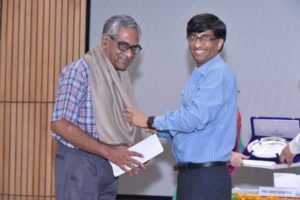Forum for Academic Freedom, IIT Kanpur (FfAF) organized a session “IITK as an Academic Space through the years: A Personal Journey” on 7th February 2020. The session was aimed to be an interactive session with Professor Harish Karnick, who’s been a part of IITK since 1969, first as a student and now as a professor. Vox presents to you what happened at the session. Note that the views are entirely his and the statements made here are based on the comments he made in the session.
Prof. Karnick spoke about how he came to IITK for counseling and noticed the absence of walls. The halls of residence, the academic area, and the outside world were all one entity and weren’t separated by walls. He joined IITB post counseling and feels times have changed since he was a student, pointing out to a recent notice sent out by the Director of IITB.
He began with the definition of an academic space. An academic space, in his views, is a cohort of individuals who ingress or egress (slow) and share two important attributes:
- Commitment to the truth that is not using false facts to convince others while considering that the idea of truth is provisional and might not be the same for everyone
- Justified beliefs implied by the process of coming to the truth – differences in beliefs are fine, but they must be backed by rational justifications
He then progressed into some intriguing questions, those about the existence of God, about the flat Earth theory and about the Geocentric theory. When there were a few hesitant raised hands during some questions, he remarked, “the basic axiom of having an academic space is raising hands confidently when one believes in something.”
Next, he mentioned certain instances which he feels are extremely worrisome trends. Notably:
- Few students approaching him about how their mentors had asked them to stay out of non-academic affairs and concentrate on the work only
- Few students being in a hurry to leave his place since they were asked by the security to not be seen near faculty quarters after a certain point of time
- The information that there are around 250 cameras on campus, and a constant reminder of “unsanctioned” meetings being recorded
Extending his argument to the entire nation, he said that one cannot see IITK as an academic space when the rest of the country or the world is going otherwise. He hopes that the things are being done under coercion because there is no other palpable explanation.
To illustrate his idea of justified beliefs, he used the following example of Whatsapp messages he receives on how Muslims will outdo Hindus in population-
He presented this data from the 2001-2011 census-
| Hindus | Muslims | |
| %increase in population | 16.8% | 24.6% |
| Total population | 958 million | 170 million |
| % of the total population | 79.8% | 14% |
By assuming the rate of increase in population to be constant and using basic math, he showed how it would take 27 decades for the populations of Hindus and Muslims to equalize, and that in this scenario, the population of the country would reach more than 132 billion as well. He moreover presented data from the 1991-2001 census to show that the rate of increase in population was decreasing for both the communities, but more so for Muslims than for Hindus.
“I simply gave you all an example of justified truth. I want you all to justify the truth.”, he said after the example.
He continued by recalling how the Students’ Gymkhana came into existence, how wardens were just to sign cheques and how arguments were settled through proper discussions. Moving ahead, he talked about a couple of major events that happened in the institute-
In 1972, there was a Minimum Wage movement in IITK and a big general strike happened. All the employees who weren’t faculties were hired in an ad-hoc fashion. Since this land is very fertile (near Ganga), it was considered natural for IITK to employ people from nearby villages who were displaced from their land. At that time, the students actively led and participated in the movement. Many people got together and the Institute helped them create a Minimum Wage Committee. The BoG decided to regularise all these workers.
He added a couple of examples:
- The 1975 Emergency- where a few professors and staff were jailed and the students led a march expressing dissent against the government
- The riots against Sikhs, when the students took turns to patrol the campus and Sikh families were given shelter in Hall 1
The point he aimed at expressing through these examples was– “Academic spaces are entities that are influenced by the outside world. Hence, it is up to us to keep these spaces alive. If we are pressurized by some intermediate levels in our Institute, we must stand up and say that academic spaces are academic spaces. You and I can differ but it is not a reason to be uncivil to each other or hurt each other, physically or mentally.”
He closed the session with a couple of appeals-
- Whenever we make claims, they should be examined in light of the facts available.
- Everyone should be given the right to have their beliefs, even if it might not align with a certain ideology
Credits- Abhimanyu Sethia, Aditya Sonthalia










